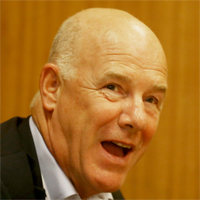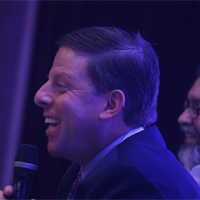Does Public Affairs need regulation in India?
PR Insight
Paarul Chand
 Public Affairs gets a bad rap in India - made more so by the infamous Niira Radia tapes scandal four years ago and scores of early Bollywood films featuring pan chewing fixers clutching old fashioned diaries. Yet, public affairs, as a profession, has never been more important today as India sees the rise of a highly vocal consumer class who have the social media tools to demand change. This shows not only in the way consumers share their views on products and services but also in political expression which has led to the unprecedented creation of the Aam Aadmi Party.
Public Affairs gets a bad rap in India - made more so by the infamous Niira Radia tapes scandal four years ago and scores of early Bollywood films featuring pan chewing fixers clutching old fashioned diaries. Yet, public affairs, as a profession, has never been more important today as India sees the rise of a highly vocal consumer class who have the social media tools to demand change. This shows not only in the way consumers share their views on products and services but also in political expression which has led to the unprecedented creation of the Aam Aadmi Party.
No regulation for public affairs
The practice of public affairs – not withstanding public perception- is a highly professional practice in India, working hard to come to grips with the demands of today. In recent years, APCO has famously been credited with making Prime Minister Narendra Modi acceptable to mainstream India and the world and has also been hired by Nestle India to handle the Maggi noodle crisis.
With every PR firm worth its name now possessing a public affairs practice, questions of creating entry barriers, regulation and code of ethics are being raised.
 At a recently held seminar organized by the Public Affairs Forum of India (PAFI), Kevin Bell, global practice chair for public affairs, Genesis Burson- Marsteller, said that he doesn’t believe in excessive regulation of the public affairs industry or barriers for that matter.
At a recently held seminar organized by the Public Affairs Forum of India (PAFI), Kevin Bell, global practice chair for public affairs, Genesis Burson- Marsteller, said that he doesn’t believe in excessive regulation of the public affairs industry or barriers for that matter.
Bell recommended a “light touch” and “ transparency” as the key elements of any regulation, adding that a free press and free market is the best check on public affairs practitioners.
Bell advised public affairs professionals to do what he calls a “Times of India front page test”. “If you don’t want to see a story on the front page of ‘The Times of India’ or ‘The Guardian’, don’t do it, said Bell.
Giving the example of the UK, Bell said that he couldn’t recall a single incident of a public affairs practitioner failing at their job; it’s usually the politician who fails.
Brand Gandhi, Modi and Thatcherism
With the upcoming Bihar elections, Bell had two observations to offer about the leaders of the two national parties in the fray. Bell, who was founding director of ‘Westminster Strategy’, a leading public affairs agencies in the 80’s and 90s and has been advisor to late British Prime Minister Margaret Thatcher, said the reactions of the electorate to Narendra Modi reminded him of the early Thatcher days where the perception was that the promised change was not happening fast enough. Bell has some succinct counsel to offer to Indian citizens who feel Modi is not delivering fast enough –“ be patient”!
Commenting on dynasty led politics Bell said that even the United States is seeing that (with the Clinton and Bush families). Bell pointed out that families like the Gandhis’ function very much like brands do, evoking a sense of familiarity and reliability.
Therefore, it may be too early to declare the death of the GOP and the Gandhis as the media has been doing ever since the general elections last year.
Hyperlocal strategy, data and ‘stakebrokers’ in public affairs
 As public affairs plays an increasing role in connecting government and businesses with the public, Evan Kraus, president and managing director of operations, APCO Worldwide, flagged of three large trends that are defining public affairs today. First of all, Kraus said that content which is both localized and globalized is at the forefront of engagement. Data flows, which are now available due to e-commerce, offer strong insights for hyperlocalisation of content and hyper targeting of audiences’. Responding to a question on the rising religiosity in Indian politics, Kraus said that hyper data would be useful in understanding this phenomenon, adding that rising religiosity is a trend being seen worldwide.
As public affairs plays an increasing role in connecting government and businesses with the public, Evan Kraus, president and managing director of operations, APCO Worldwide, flagged of three large trends that are defining public affairs today. First of all, Kraus said that content which is both localized and globalized is at the forefront of engagement. Data flows, which are now available due to e-commerce, offer strong insights for hyperlocalisation of content and hyper targeting of audiences’. Responding to a question on the rising religiosity in Indian politics, Kraus said that hyper data would be useful in understanding this phenomenon, adding that rising religiosity is a trend being seen worldwide.
Secondly, there is a convergence of disciplines for public affairs and individual designations such as corporate communications are becoming increasingly irrelevant. Kraus said the large part of the job is being a translation function internally and externally. Kraus also said that policy is a term he is uncomfortable with while defining public affairs, saying that policy implies an outcome whereas reputation, entrepreneurship and permission to operate are the most important ways to define public affairs today.
Lastly, Kraus said that public affairs have been elevated to a business level function sitting very close to the CEO with the consumers expecting more from companies. Quoting a recent study done in the US, Kraus said that as many as 61 percent of consumers surveyed said that they want companies to perform functions that are traditionally handled by governments.
These new expectations have given rise to what Kraus termed ‘stakebrokers’, who are seven times as likely to express an opinion and are highly influential on various issues.
What makes a successful public affairs professional?
The good news, no degree or educational qualification is needed to become a public affairs professional. While saying that “on the job training” is the best teacher for public affairs practitioners, Bell said that it is important to write well. He also said that some of the most successful people he has worked with are the children of politicans. Therefore, a familiarity and interest in poliics and the system is a useful qualification.
If you enjoyed this article, you can subscribe for free to our weekly event and subscriber alerts.
Featured

PR professionals share their views on journalists publicly calling them out on story pitches

Auto blogger renders unconditional apology to Value 360 for defamatory posts

Hottest Indian startups of 2020, Paytm, Dreams 11 lead the charge: Wizikey Report




